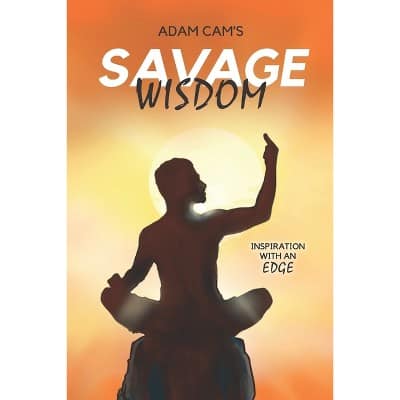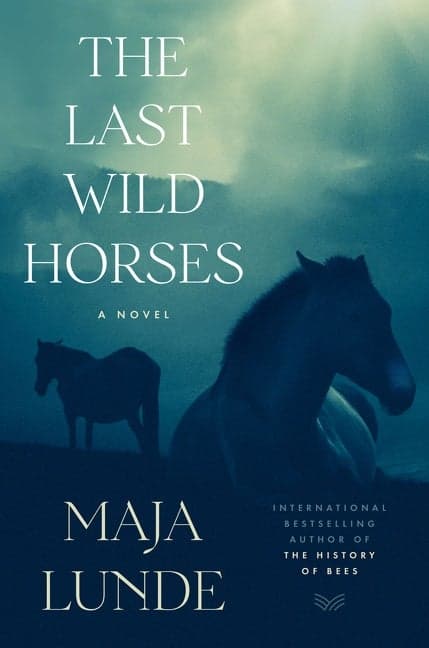2 Ages of Greatness

Reread the classics you read as a child. Your changed perspective offer richness you missed thirty, forty, or fifty (!) years ago.
Roaring is Boring, Boasting, Bullshit

Another quiet Sunday. Another excuse to digest two or three books. Recently, to fill a dull day and to maybe get some Gen X advice as I move into a new stage of my life, I grabbed Roar: Into the Second Half of Your Life. What garbage. The author boasts: Discover how to make the second half of your life happy and productive with this perceptive and inspiring guidebook that will help you achieve your dreams and get more out of life—whether or not retirement is in your future plans. The idea intrigued me. With my retirement from the law and my venture into life as a full-time creative, I thought author Michael Clinton, a super-successful creative in his own right, would have great advice. Clinton was President and Publishing Director @ Hearst Magazines, a published author, a popular photographer. And a philanthropist. Good guy. Very impressive. And the book becomes a drawn-out self-celebration of this silver-spoon boy: I did this. I did that. I achieved this. I won that. Puke. Worse, the story examples he uses to inspire the reader are all people who live in his high-earner circle. How these well-to-dos leave executive positions to become artists and humanitarians. And all of them are healthy and financially secure. Sure, in that economic stratus, you can afford your insulin or even your regular medical check up. Well, isn’t that special. I need a book to help this blue-collar chick – and other GenXers like me – who come from nothing and want to celebrate and succeed well into our 90s. Hey, Michael? Take your boasting to your next fru fru cocktail party. No, I didn’t link to his book. Because he loves himself enough. Image courtesy of Glen Carrie on Unsplash
The Night Watchman

I admit. I’m a literature nerd. In bookstores wander past literature and Pulitzer or award-winning tables and point: “Read that. Read that. Read that twice. Yup. That, too.” My family gets eye cramps from the eye-rolling groans. No, I’m not typically a follower of popular anything (Molly Cyrus, who?), but when it comes to books, I have found the reading army can judge genius versus tripe. So, I picked up the Pulitzer winner: The Night Watchman. Admittedly, this book was published years ago (2020), but it takes me time to catch up. (I have, at any one time, over 60 books in progress…) Louise Erdrich penned this historical novel based on her grandfather’s experience during the Native American Chippewa (Ojibwe) fight against government dispossession in the 1950s. Congress offered a bill to “terminate” tribes. Couched in “we’re the government and we are here to help” terms, the bill is meant to cut funding and capture land. Period. How a government decides whether a people can exist as a people is beyond this anarchist’s reality, but I digress. The plot follows several characters and explores life and living of Native Americans in the 1950s. The writing is excellent. The story is engaging. The tribulations and challenges were and are still very real for indigenous people. The touches of day-to-day life, food and traditions, are beautiful. And I was bored. Yes, yes, I know. I’m diverging from 99% of the reviews. But I had to struggle through most of the book. And I felt cheated. This book relies on its connection to real people and history – and leans on diversity. But it does not deliver a great story. I loved the main character, Thomas Wazhask, and wanted to hear about him. His struggle with the government. His experiences. His dedication to his people and his awareness of government intent. I adored Millie Cloud, the educated professor who assists Thomas with her economic research. Brilliant, sensitive, and evolving character. The rest of the novel, I found an effort to be some tween YA exploration of dating. And fashion. Yawn. Some of it is just plain weird. One of the lead characters, a nineteen year old (Patrice, aka Pixie), attempts to find her missing older sister – but takes a job at a bar wearing a blue ox costume and swimming in a tank. I just don’t get it. And I don’t care. It was unrealistic. An unsophisticated child is able to survive, without being violated or assaulted, in the city underworld? Stop it. And why add this plot line? These digression sagas frustrated me. Where is Thomas? What’s happening with the congressional attack? I want to be burdened by the political challenge. And while the personal lives of the family members are throughout, I don’t think Erdrich presented a meaningful picture of the challenges or beauty of the Native American people. This book missed the mark for me. (Image courtesy of Andreas Wagner on Unsplash)
Savage Wisdom

Adam Cam is my tribe. I had followed him on social media and, on a whim on a boring Sunday, decided to pick up Savage Wisdom. I read this coaching, self-improvement book in a few hours. While it boils down to a series of bullet points Cam already highlights in his social content (a bit lazy when I think Cam could write a denser work), his advice is spot on. His bullet point with illustrations approach works. And that’s his f’ng point. He coaches the way I coach. No bullshit. Our world – especially the mental health and self-improvement arenas – are filled with hug-yourself victim advice. That poor you approach does nothing to help you become stronger and healthy. Take Cam’s advice: Quit Bathing in Shit: Having a victim mentality is like bathing in your own shit and wondering why you smell. Learn to Love the Sound of Your Own Feet Walking Away from the Muthafuckas who are no good for our head, heart and soul. As you can tell, Cam’s approach is not for the puppy-huggers. He’s raw, honest, and offers advice that will help you grow to be the best version of yourself. Choose you over everyone else. Start on that road and read Savage Wisdom.
The Last Wild Horses

The Last Wild Horses focuses on the protection of the fabled Przewalski horse to knit together three timelines: Mikhail, a Russian zoologist who, in 1881, ventures to Mongolia to capture the rare horse. Karin, a modern-day (1992) veterinarian who has dedicated her life to saving the breed from extinction. And Eva, a veterinarian in 2064 who is facing climate dystopia while she tries to care for the Przewalski horses on her family farm. I selected this book, honestly, because I love horses. After listening to the snippet, I was intrigued. Without prior experience with Lunde or knowledge of her Climate Quartet series, I enjoyed the book. Lunde has mastered characterization: I cared about each of the characters and found myself thinking about them even when not reading. To me, that emotional impact is the key to effective characterization: If I feel like I know these characters. Like they are friends about whom I am concerned. I also enjoyed the human connection between the timelines – and the metaphorical representation of the human condition through the lives of the horses. Nice parallel to stress life is life. With the admittance that I have not read Lunde before and had no acquaintance with her Climate Quartet, I found much of the plot forced. What do I mean? It seemed Lunde had great ideas for moments and merely glued them together in a weak structure. I also found the sexual relationships awkward – people don’t interact the way she portrays. Those criticisms, however, do not negate the warmth and value of the story which is thoughtful and left me with continued concern about the characters and what happens to them after I closed the cover. And I love the horses. Read The Last Wild Horses and let me know what you think!